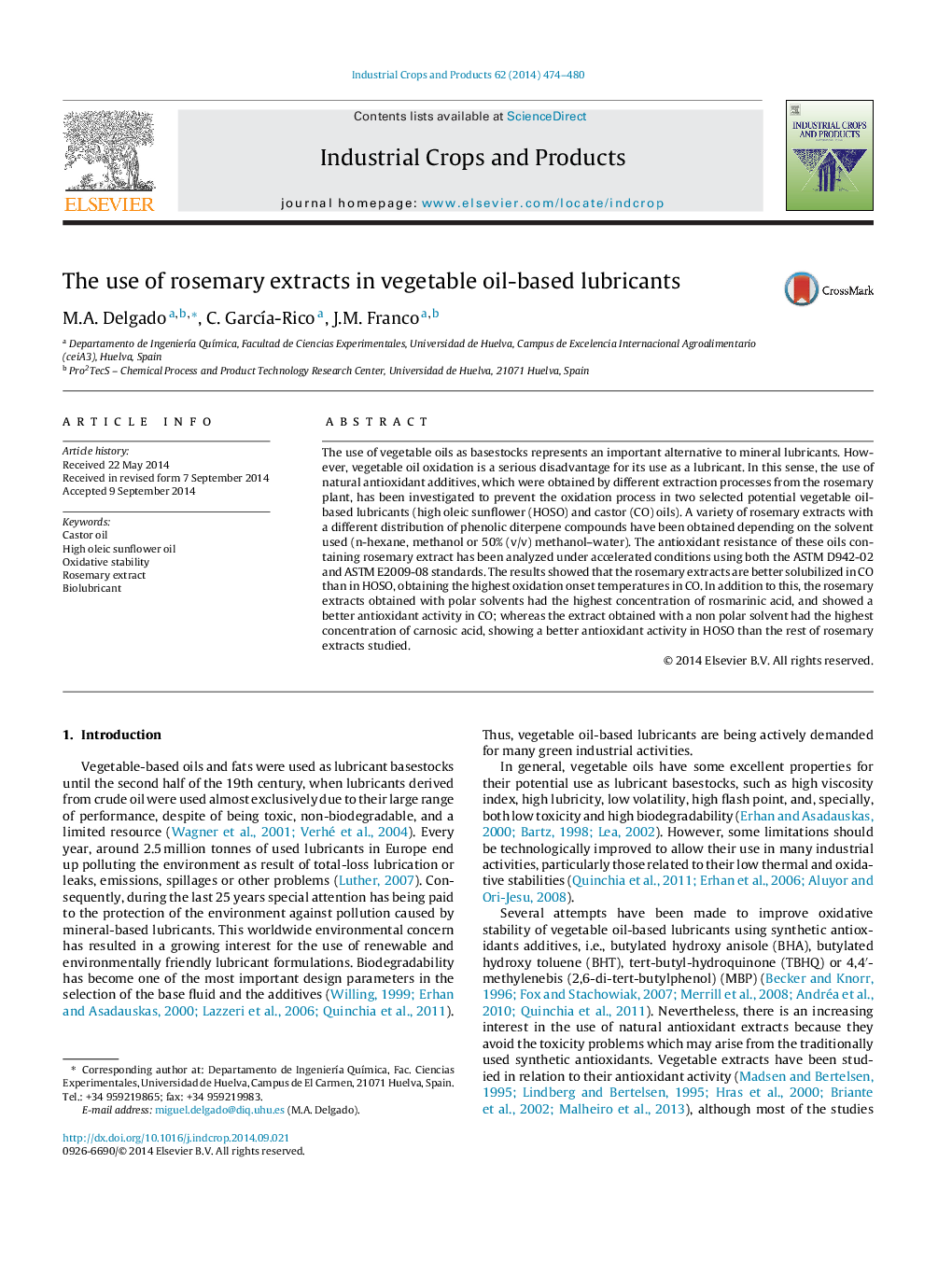| Article ID | Journal | Published Year | Pages | File Type |
|---|---|---|---|---|
| 6376461 | Industrial Crops and Products | 2014 | 7 Pages |
Abstract
The use of vegetable oils as basestocks represents an important alternative to mineral lubricants. However, vegetable oil oxidation is a serious disadvantage for its use as a lubricant. In this sense, the use of natural antioxidant additives, which were obtained by different extraction processes from the rosemary plant, has been investigated to prevent the oxidation process in two selected potential vegetable oil-based lubricants (high oleic sunflower (HOSO) and castor (CO) oils). A variety of rosemary extracts with a different distribution of phenolic diterpene compounds have been obtained depending on the solvent used (n-hexane, methanol or 50% (v/v) methanol-water). The antioxidant resistance of these oils containing rosemary extract has been analyzed under accelerated conditions using both the ASTM D942-02 and ASTM E2009-08 standards. The results showed that the rosemary extracts are better solubilized in CO than in HOSO, obtaining the highest oxidation onset temperatures in CO. In addition to this, the rosemary extracts obtained with polar solvents had the highest concentration of rosmarinic acid, and showed a better antioxidant activity in CO; whereas the extract obtained with a non polar solvent had the highest concentration of carnosic acid, showing a better antioxidant activity in HOSO than the rest of rosemary extracts studied.
Related Topics
Life Sciences
Agricultural and Biological Sciences
Agronomy and Crop Science
Authors
M.A. Delgado, C. GarcÃa-Rico, J.M. Franco,
